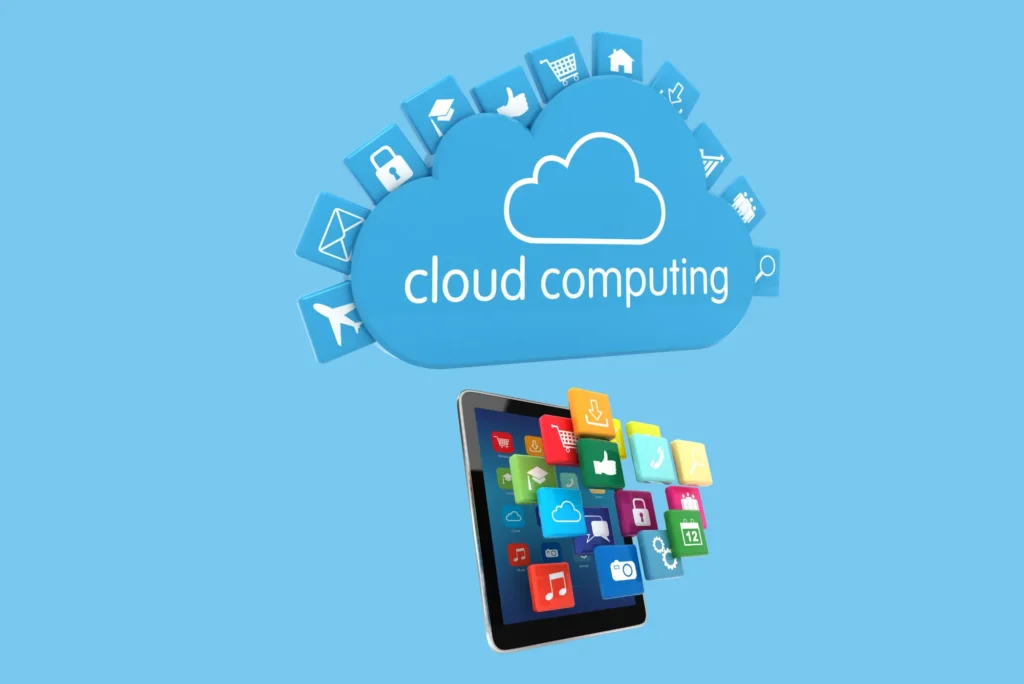App development has come a long way from the days of building software on isolated machines and shipping it out as a finished product. Today, we’re in an era where agility, scalability, and real-time updates are expected — and cloud computing has become a driving force behind this shift.
As someone who’s worked closely with both an App Development Company and a Game Development Company, I’ve seen firsthand how cloud-based tools and infrastructure are reshaping the landscape. Whether you’re a startup building your first mobile app or a large studio developing an immersive game, understanding cloud computing’s role is no longer optional — it’s essential.
Understanding Cloud Computing in the Context of App Development
At its core, cloud computing refers to the delivery of computing services — like servers, storage, databases, networking, software, and analytics — over the internet, or “the cloud.” Instead of buying, owning, and maintaining physical data centers and servers, companies can access technology services on-demand from cloud providers like Amazon Web Services (AWS), Microsoft Azure, or Google Cloud Platform.
For developers, this means you’re no longer tied to specific hardware, and you don’t need to manage your own servers — which is a game-changer.
Speed and Scalability: The Developer’s Dream
One of the biggest benefits I’ve noticed when working with cloud-integrated projects is the speed at which developers can move. Setting up infrastructure used to take days or even weeks. With cloud services, this now takes minutes.
A well-established App Development Company can spin up environments for development, testing, and production with just a few clicks. Need to scale up for a new marketing campaign? No problem. Cloud platforms can handle surges in traffic without downtime. This kind of scalability is crucial for modern apps that need to serve users across multiple regions, devices, and networks.
Let me share an example: we once worked on a mobile e-commerce app that launched during a major holiday sale. Because we’d used AWS’s auto-scaling services, the app handled a tenfold increase in traffic without a hitch. No crashes. No slow load times. Just smooth sailing — and happy users.
Cost-Effectiveness That Enables Innovation
Cloud computing follows a pay-as-you-go pricing model. This allows small and medium-sized companies to access the same powerful tools as industry giants, without massive upfront investments. That kind of flexibility is empowering.
In fact, this is one of the reasons cloud computing is especially important for startups and emerging game developers. A Game Development Company can build and deploy multiplayer environments using backend-as-a-service (BaaS) platforms like Firebase or PlayFab without needing their own infrastructure teams.
Instead of spending budget on hardware and maintenance, teams can allocate more resources to refining the user experience or enhancing graphics — where it really counts.
Easier Collaboration for Remote Teams
Let’s face it: remote work is here to stay. And in development, especially in larger teams, collaboration can quickly become a nightmare without the right tools. Cloud-based platforms make it seamless.
With services like GitHub, GitLab, and Bitbucket integrated with CI/CD pipelines on the cloud, developers can collaborate in real-time, push code updates, run automated tests, and deploy changes — all from anywhere in the world.
I remember working on a project where team members were split across three time zones. Thanks to our cloud-based dev environment and shared tools, we stayed productive and aligned. And that’s not just a benefit — it’s a competitive edge.
Cloud Storage and Data Management
Apps today are data-hungry. Whether it’s user data, analytics, media files, or app settings, storing and managing data efficiently is non-negotiable. Cloud storage options, such as AWS S3, Google Cloud Storage, or Azure Blob Storage, offer near-infinite storage capacity with built-in redundancy and backups.
But it’s not just about storing data — it’s also about accessing and analyzing it. Cloud-based analytics platforms can give real-time insights into user behavior, performance bottlenecks, and feature usage. For both an App Development Company and a Game Development Company, these insights are gold. They help inform design decisions, optimize performance, and shape future updates.
Security and Compliance
Security used to be one of the main concerns about cloud computing. And while it’s still important to be vigilant, major cloud providers have significantly raised the bar when it comes to security standards.
Encryption, authentication, firewalls, and compliance frameworks (like GDPR, HIPAA, and ISO certifications) are now built into most cloud offerings. Of course, the responsibility is shared — cloud providers secure the infrastructure, and you secure your applications and data. But the tools available make it easier than ever to do so effectively.
For example, in one financial app we developed, using AWS KMS (Key Management Service) and IAM roles allowed us to create a highly secure and auditable environment — a requirement given the sensitive nature of the data we were handling.
Continuous Integration and Deployment (CI/CD)
In agile development, shipping small, frequent updates is the norm. Cloud-based CI/CD pipelines are the backbone of this process. They allow developers to automate testing, integration, and deployment processes, reducing errors and speeding up the time to market.
In one project, we integrated GitHub Actions with AWS CodeDeploy to build a seamless deployment workflow. Any code pushed to the main branch triggered a pipeline that ran tests, packaged the app, and deployed it to staging — all automatically. This meant faster development cycles and fewer bugs reaching production.
Game Development and Real-Time Processing
Game development has unique demands, especially when it comes to multiplayer functionality, real-time communication, and cross-platform compatibility. Cloud computing meets these needs with tools specifically tailored for games.
Services like AWS GameLift or Azure PlayFab offer real-time multiplayer servers, matchmaking, leaderboards, and player analytics — all powered by the cloud. A modern Game Development Company can use these tools to build and launch games faster, iterate based on user feedback, and maintain seamless gameplay experiences.
I’ve been part of projects where cloud-hosted game servers reduced latency and allowed us to serve a global player base. Without the cloud, this would have required extensive (and expensive) infrastructure setup.
Future-Proofing Your App Strategy
Technology evolves fast. What works today might not be ideal tomorrow. Cloud computing helps developers stay ahead of the curve by offering constant updates, new services, and emerging technologies like machine learning, AI, and IoT — all accessible through APIs and SDKs.
I’ve seen app teams quickly integrate features like voice recognition, image analysis, and chatbots — all thanks to ready-made cloud services. This level of agility allows apps to remain competitive and relevant, even as user expectations change.
For companies building long-term digital products, the cloud isn’t just helpful — it’s strategic.
Final Thoughts
Cloud computing is not just a trend; it’s a foundational shift in how we build, scale, and maintain applications. Whether you’re an App Development Company working on enterprise software or a Game Development Company building the next big multiplayer hit, the benefits are clear: faster development, better collaboration, lower costs, and endless scalability.
It’s not about whether you should use the cloud — it’s about how effectively you can leverage it to bring your vision to life.
If you’re starting your journey in app development or looking to optimize your current setup, consider cloud-first architecture. It’s not just the future — it’s the present, and it’s enabling some of the most innovative apps and games on the market today.
Are you already using cloud computing in your app or game development process? What has your experience been like?








